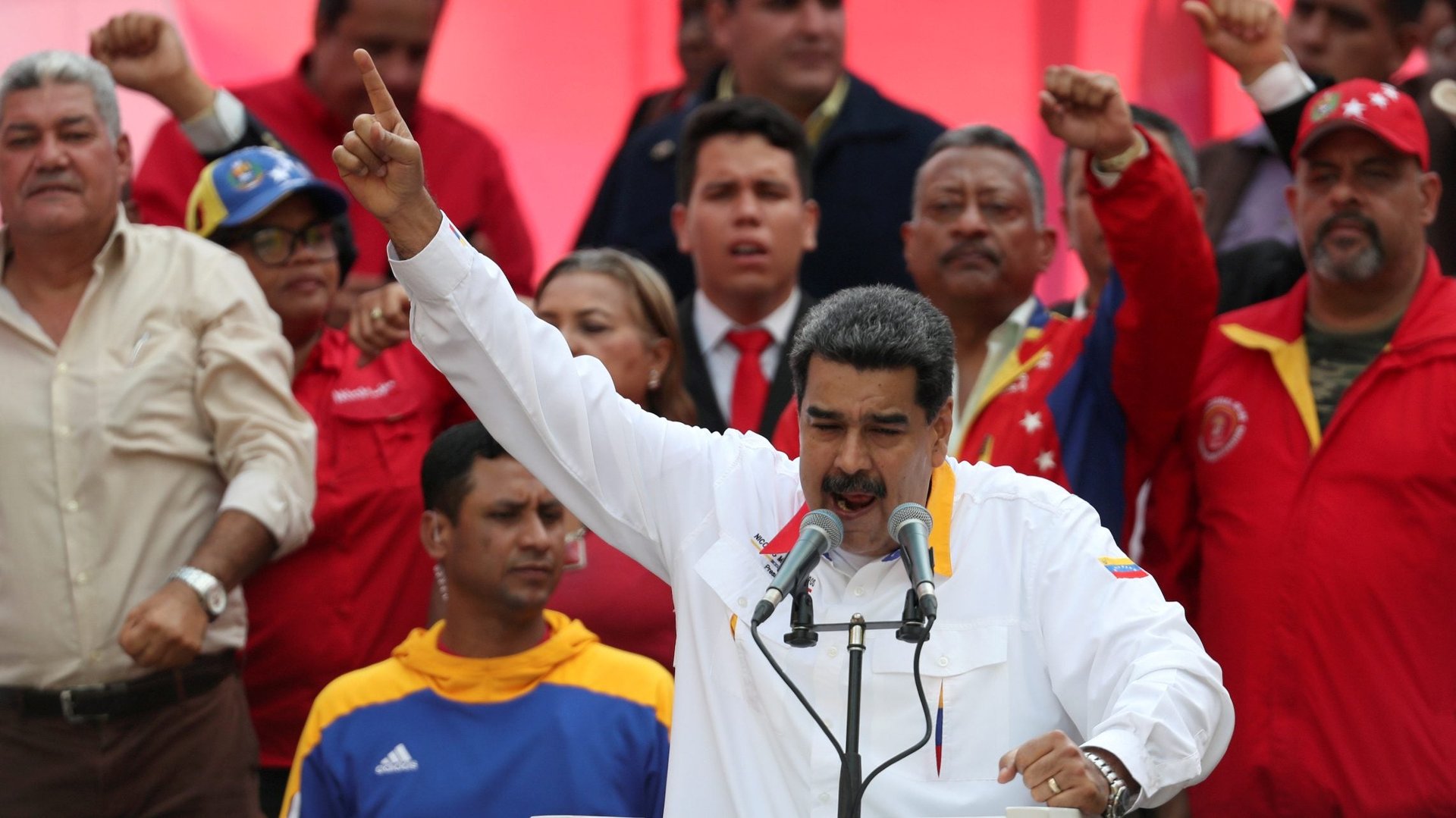Venezuela has finally admitted to the awful state of its economy
This week Venezuela’s central bank unexpectedly published data (link in Spanish) on economic growth and inflation. It’s the first time in years that official figures on the economy have been released. Regular updates stopped in 2015 as president Nicolás Maduro’s government plunged the country into severe economic crisis.


This week Venezuela’s central bank unexpectedly published data (link in Spanish) on economic growth and inflation. It’s the first time in years that official figures on the economy have been released. Regular updates stopped in 2015 as president Nicolás Maduro’s government plunged the country into severe economic crisis.
Last summer the IMF said it expected inflation in Venezuela to soar by 1 million percent by the end of 2018. The central bank’s figures don’t quite show seven-digit-inflation, but they do admit to a period of destructive hyperinflation. According to its account, by the end of last year the annual rate of inflation had reached 130,000% (paywall), up from about 860% a year earlier and 260% at the end of 2016. For April 2019, the most recent data, annual inflation was at 282,973%.
The IMF forecasts inflation to be 10,000,000% by the end of this year. By contrast, the central bank shows hyperinflation easing somewhat, and says monthly increases in the inflation rate are now about 30%, versus 200% at the start of the year. Bloomberg also reports (paywall) a slowdown, saying it has been mostly engineered by the Maduro regime, which has forced banks to hoard cash at the central bank that people would otherwise use to buy US dollars on the black market.
In the absence of official data for the past few years, private measures of inflation have been created—some more serious than others. Bloomberg attempts to track it by following the change in price of a café con leche (coffee with milk) in the capital Caracas. The most recent Bloomberg data (paywall) shows the annual inflation rate to be 99,900%.
The central bank’s data also show double-digit declines in GDP for every quarter since the end of 2015. In the third quarter of 2018, the bank says, the economy contracted by 23%.
The IMF, meanwhile, forecasts the economy will contract by 25% this year. Such a steep decline is unlikely to let up as millions of people flee the country. Since March, Venezuela has experienced frequent power blackouts. And this week, talks in Norway between Maduro’s government and the opposition ended without resolution.